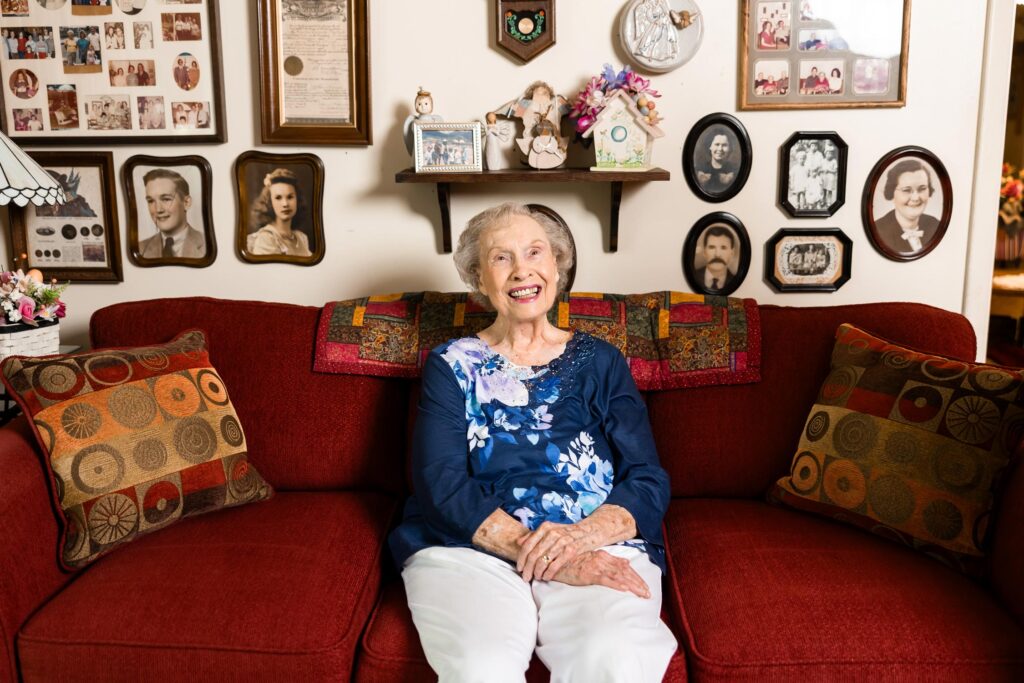The need for in-home nursing and personal care is greater than ever before since most seniors are choosing to stay at home in their later years. At-home services are a more personalized alternative to caregiving and they allow homebound older people to live comfortably and independently.
Why In-Home Care?
In-home care has recently become the popular choice among many families in the U.S., with more than two million employees working to provide private services. But why? Because nursing homes and other care facilities are just too costly for many families, and they are another source of worry.
It is perfectly natural to want to keep family members as close to home as possible. But for those whose loved ones have more demanding needs, family-provided care can often become a source of strain and can lead to caregiver burnout. In-home care is an excellent compromise that provides ease, familiarity, independence, and peace of mind for you and your family.
Where To Begin
Where Do I Start?
Planning for nursing and personal care at home can sometimes become overwhelming. The first step is figuring out what kind of home care service your family needs. The many factors to consider include level of care, medical needs, available services in your area, and type(s) of insurance accepted. This can seem difficult, but care coordination assistants can help you assess your situation and personalize your care.
What to Consider
- Level of care: A personal care or home health aide might be a good option if a family member just needs help with at-home chores such as laundry and bathing. However, if more focused or round-the-clock medical care is required, you might want to consider the services of a registered nurse.
- Expectations: Figure out what you and your loved ones want (and don’t want) in a caregiver. When searching for long-term care, compatibility and personal priorities are important in the vetting process.
- Doctor’s advice and approval: For many people, at-home nursing and other services may require a doctor’s approval for the sake of insurance coverage. However, even if you don’t need a doctor’s sign-off, following their recommendations can help you narrow down your options so you can find a service that best suits your family.
- Finances: The cost of care is often the biggest concern for those seeking in-home services. Out-of-pocket costs can seem scary at first glance, and they are often discouraging for many families. But that doesn’t mean you have to settle for anything less than what’s best for you and your loved ones. Medicaid, Medicare, and other programs are great options, but they are not always accessible. Reach out to local resources to get a better idea of all your options and to see what help is available.
What Types of Care Are Available?
Senior care is a rapidly growing field that is full of dedicated workers with various training, education, and skills. That means you’ll likely have a wide range of options to choose from. Once you’ve figured out your needs, you can get matched up with your ideal caregiver.
Personal care, home health aide, companion worker, family members, or friends all are able to provide the following assistance:
- Basic help such as running errands and tidying up the house.
- Be a short-term solution if your loved one is still relatively independent and healthy.
- Be longer-term care for a loved one who needs daily help with housekeeping and food preparation, along with bathing and bathroom assistance.
- Assist seniors with their daily needs
Certified Nursing Assistants (CNAs) can do all of these things! These are individuals are medical professionals trained to provide in-home medical care that ranges from administering medication to caring for wounds and other injuries. Federal law requires a minimum of 75 hours of training to receive a certification as a CNA and, depending on your state, may require additional certifications. If your loved one needs regular medical assistance or more round-the-clock care, a CNA is ideal.
Here at CareLink, we do have trained Personal Care Assistants (PCAs) and Certified Nursing Assistants (CNAs) who are more than happy to assist in your caregiver's needs. CareLink is currently hiring CNAs. If you are interested in becoming a CNA and want more information, click here
How Do I Find Care?
Searching for caregiving services can be a long and exhausting process that requires a lot of time and patience. However, CareLink provides plenty of ways to make your search a little easier.
- Local resources and organizations may have their own team of workers, as well as other support services to help you find the right caregiver.
- Home health care registries can be found through local searches, companies, or government-sponsored programs, and they will allow you to personally vet candidates and decide what’s best for you. Keep in mind that these sorts of searches can take a while. If you hire from a company or government program, they may have their own requirements for things like insurance, and it’s best to do your own background checks.
- Ask around for personal recommendations. If anyone in your local community has hired in-home help, ask if they can help you with your own search. Working with CareLink is a great way to make finding good care options a little easier. Our doctors may also be able to point you in the right direction.
Remember, Take Your Time
Finding high-quality in-home senior care can take a while, and for many families, the process feels overwhelming. Remember to breathe, take your time, and ask for help when you need it. Don’t rush the process. You and your loved one deserve the best care available, personalized to your specific situation.
Remember, you don’t have to search alone! If you need help getting started, CareLink is there to help you take that first step. We have a wide range of reliable services available to ensure that you and your family are supported and well taken care of.





